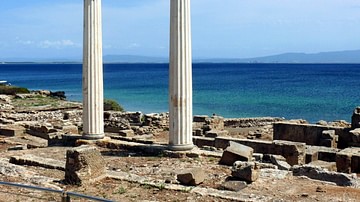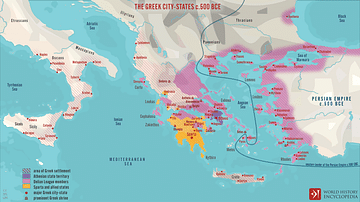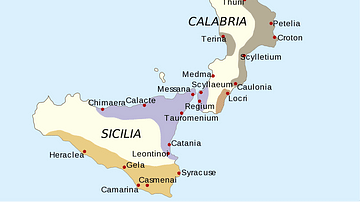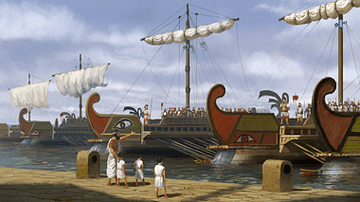Server Costs Fundraiser 2024
Help our mission to provide free history education to the world! Please donate and contribute to covering our server costs in 2024. With your support, millions of people learn about history entirely for free every month.
$3890 / $18000
Collection
Colonization of the ancient Mediterranean had been taking place since the Bronze Age, especially with Minoan and Mycenaean expansion, but it was the Phoenicians from the 10th century CE that really took the whole idea to a new level. The great Phoenician cities like Tyre established trading posts across the Mediterranean and some of these eventually became such famous places as Carthage and Palermo. From the 8th century BCE, the Greeks started to join the fun and established their colonies in Sicily, southern Italy, and even the Black Sea. Consequently, the food, politics, and cultural practices of the eastern Mediterranean spread further and further west.
The Phoenicians were great traders and great navigators, and this combination of skills almost inevitably resulted in them establishing colonies wherever they went.
Questions & Answers
What was the significance of Greek colonization to the history of the Mediterranean region?
- The significance of Greek colonization to the Mediterranean region was the spread of Greek culture such as pottery, olive- and wine-growing, architecture, and religious practices.
When did the Greeks colonize the Mediterranean?
- The Greeks colonized the Mediterranean region from 800 BCE to 500 BCE. Greek colonies also established their own secondary colonies.
Subscribe to this author
About the Author
![Mark Cartwright]()
Mark is a full-time writer, researcher, historian, and editor. Special interests include art, architecture, and discovering the ideas that all civilizations share. He holds an MA in Political Philosophy and is the WHE Publishing Director.
Free for the World, Supported by You
World History Encyclopedia is a non-profit organization. For only $5 per month you can become a member and support our mission to engage people with cultural heritage and to improve history education worldwide.
Become a Member
Donate
License & Copyright
Uploaded by Mark Cartwright, published on 26 November 2018. The copyright holder has published this content under the following license: Creative Commons Attribution-NonCommercial-ShareAlike. This license lets others remix, tweak, and build upon this content non-commercially, as long as they credit the author and license their new creations under the identical terms. When republishing on the web a hyperlink back to the original content source URL must be included. Please note that content linked from this page may have different licensing terms.







